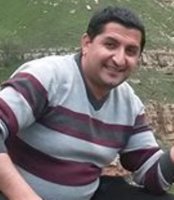Gunel’s Journey to a new beginning as a hairdresser
When hundreds of thousands of people had to flee their homes due to the Karabakh War in the early nineties, the tranquillity of Shaplar village in Kalbajar district was shattered too, leaving Gunel’s family, their home, gardens, livestock, and all they owned, swept away. The family found temporary shelter at the "ECO” camp in Yevlakh district which was established by the local authorities in 1993 with the support of the international community. "I was one year old when my family came to the "ECO” camp where I started and completed my full secondary education. Becoming a hairdresser was my childhood dream. In the upper grades, I even tried to gain experience by offering beauty services to my relatives and neighbours," said Gunel...
Young chef seizes opportunity through apprenticeship programme
Born into a lineage of culinary enthusiasts, 20-year-old Ravan Ahmadov’s fascination with cooking was stimulated already at a young age, as he observed his father skillfully preparing delightful dishes. His father graduated with honors as a chef and dedicated himself to the culinary craft, serving as a professional cook in village assemblies. Inspired by this legacy, Ravan aspired to pursue formal education and followed in his father's footsteps as a professional chef. However, financial constraints cast a shadow on his dreams...
Rural municipalities are committed to operating with greater transparency

Local representative offices of the “Government-Civil Society Dialogue Platform on Promotion of Open Government” are formed in the regions
“MilliÖn” payment terminal planned to be installed in remote mountain villages of Azerbaijan
There will always be sunshine after the rain

Shollar water

Now, a great part of Shahnezerli village is using "Shollar” water as drinking purposes
Shahnezerli community of Shabran rayon suffered from lack of potable water for long years. Despite of existence of potable water line in the village, only 3-4 local families can use this water since the water line is out of order. Other families carried water or were obliged to use ditch water for drinking purposes after purifying it. Though the project’s implementation delayed for









